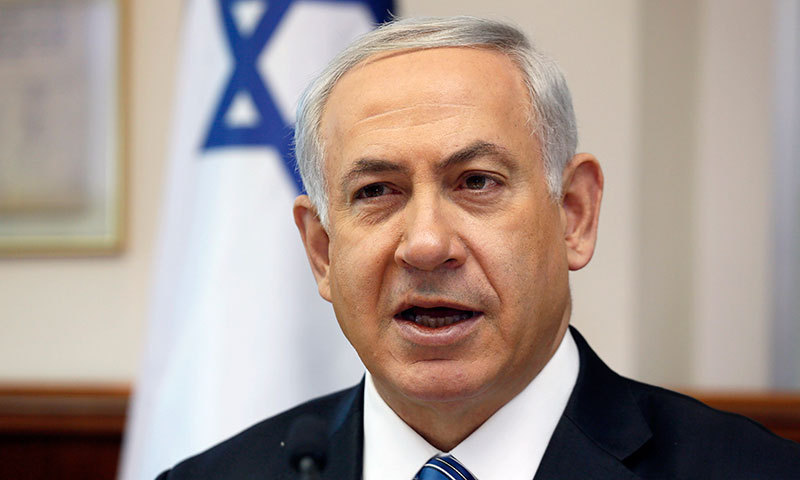JERUSALEM: Prime Minister Benjamin Netanyahu’s office said it called off the Israeli leader’s visit to the United Arab Emirates on Thursday, citing disagreements with the Jordanian government.
The Netanyahu’s office said in a statement that because of difficulties in coordinating his flight in Jordanian airspace the visit was postponed until further notice. It said the conflict stemmed from the cancellation of the Jordanian crown prince’s visit to a contested shrine in Jerusalem on Wednesday due to a disagreement over the security and protection arrangements at the site.
Jordan serves as the custodian of Jerusalem’s holy site known to Muslims as the Noble Sanctuary and to Jews as the Temple Mount. Jordanian Crown Prince Hussein bin Abdullah II had planned to visit the holy site, home to the Al-Aqsa Mosque, but turned back at the King Hussein Bridge border crossing due to a disagreement with Israeli authorities over the number of armed escorts that could accompany him, Israeli media reported.
The Jordan’s foreign minister, Ayman Safadi, said the crown prince had planned a private visit to join night prayers for the Muslim holy day. He said Israel had changed agreed-upon arrangements at the last minute, forcing the crown prince to call off the visit.
His highness decided he did not wish to disrupt this peaceful night of prayer and decided to cancel his visit, he said, speaking through a translator at a Paris summit. We cannot accept Israeli interference in the affairs of Al-Aqsa.
The Prime Minister’s Office said the historic visit, the first by an Israeli prime minister since the establishment of bilateral relations last year, would be rescheduled with Emirati authorities. The trip was meant to cement new diplomatic ties between the Mideast nations and boost the embattled Israeli leaders re-election hopes.
Oded Eran, a former Israeli ambassador to Jordan, said the latest spat between Israel and Jordan reflected a deeper deterioration in relations in recent years.
The major problem is there is no dialogue between the No.1s in Jordan and Israel. That is to say between the prime minister and the king of Jordan, he said, saying the two leaders are not known to have met or spoken for at least three years.
Eran also said there is a lack of trust, highlighted by Israel’s plans last year to annex parts of the Israeli-occupied West Bank.
Israel suspended the annexation plan as part of its agreement to establish ties with the UAE, but Eran said the Jordanians remain deeply suspicious that Israel has not abandoned its intentions to annex the area.
Jordan, which is home to a large Palestinian population, considers the establishment of an independent Palestinian state in the neighbouring West Bank to be a key interest, and Israel’s annexation of parts of the area would make Palestinian independence all but impossible.
Israel and the Palestinians have not held substantive peace talks in over a decade.
At the least, they need a political process and movement toward a solution, said Eran, now a senior researcher at the Institute for National Security Studies, a Tel Aviv think tank. The process itself is very important to the Jordanians and when it is not there, there are certainly concerns with regard to the situation.
